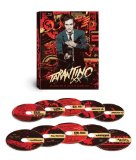| Reviews & Columns |
|
Reviews DVD TV on DVD Blu-ray 4K UHD International DVDs In Theaters Reviews by Studio Video Games Features Collector Series DVDs Easter Egg Database Interviews DVD Talk Radio Feature Articles Columns Anime Talk DVD Savant Horror DVDs The M.O.D. Squad Art House HD Talk Silent DVD
|
DVD Talk Forum |
|
|
| Resources |
|
DVD Price Search Customer Service #'s RCE Info Links |
|
Columns
|
|
|
Tarantino XX: Celebrating 20 Years of Filmmaking
Tarantino XX: Celebrating 20 Years of Filmmaking collects the first seven of Tarantino's films (six by his count -- he referred to Kill Bill as one film in a recent radio interview), plus True Romance, the Tony Scott-helmed execution of the first script Tarantino ever sold. Viewed in order, his work shows a shockingly straightforward sense of artistic growth with nearly every film, his conscious subversion of his own reputation to find new facets of his style, and an artist who had a hell of a loud and interesting (if not entirely compelling) voice right from the very beginning.
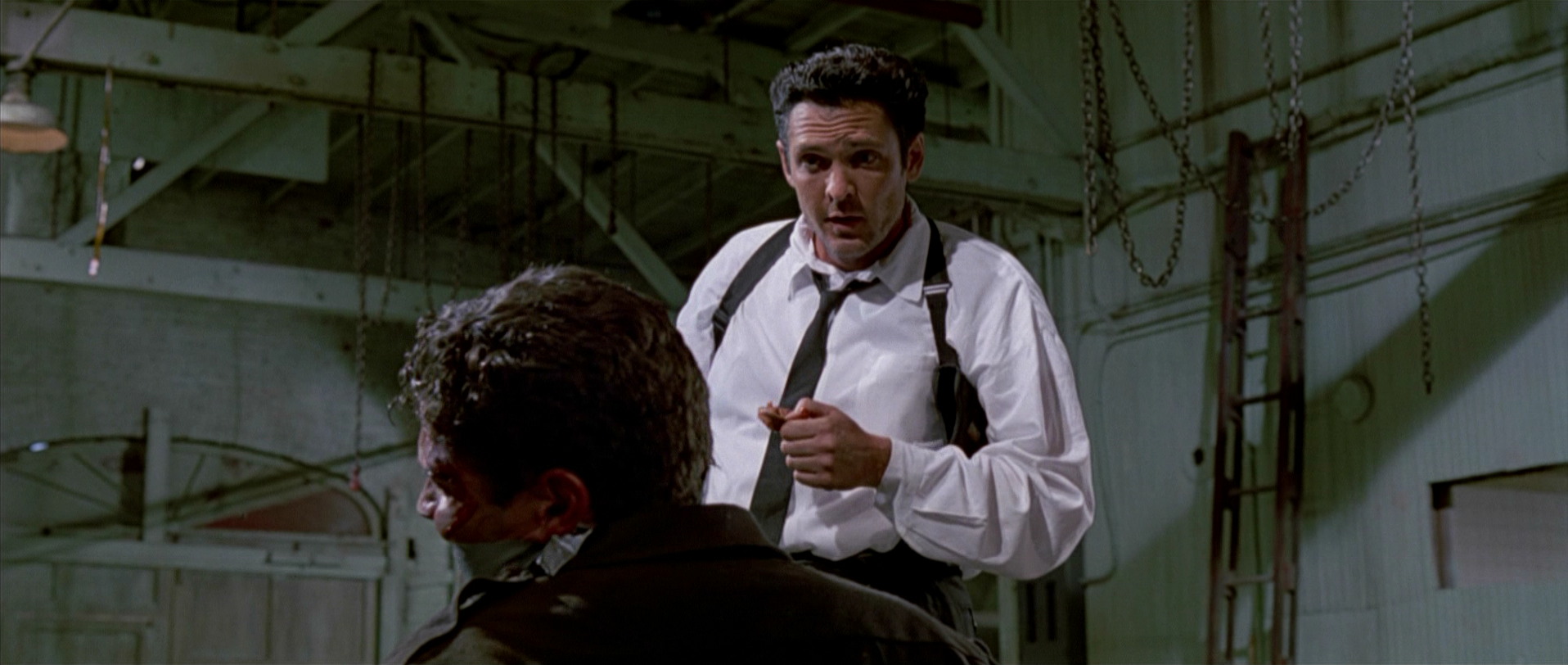
Personally, Reservoir Dogs has always been the least of Tarantino's movies, and after revisiting it for this review, nothing's changed. Right from the beginning, it's got something but it doesn't quite work, starting with the opening speech about "Like a Virgin" (delivered by Tarantino himself) and continuing through to the tipping argument. The scene feels overly self-conscious in its attempt to be casual and doesn't dig at anything deeper than Mr. Pink's selfish pragmatism, a criticism that generally applies to the entire movie. Other, similar scenes (such as the one where the gang talks about Pam Grier) are delivered with a more natural air, but still don't have any bearing on anything -- the same rambling, conversational chatter that would work for Kevin Smith two years later plays for Tarantino like the germ of an ambition or idea he can't yet articulate. Many of the "filler" conversations (anything other the film's most frequently quoted moments, including an endless, ugly, and mostly pointless introduction to Michael Madsen's Mr. Blonde) lie flat on the screen, as if they were written by any of the filmmakers who would try to rip off Tarantino in the early 2000s. There are some great performances (Lawrence Tierney, Chris Penn), and few shining moments of stylistic magic (the entire process of Tim Roth's character learning to recite an anecdote, complete with a flashback to the actual "moment", plus the unintentional creation of a cinematic mystery, something at least one Tarantino was cosmically obligated to offer), not to mention the infamous ear-cutting scene, which combines performance and music in a way that strongly hints at Quentin's future films, but there's no denying the film is the work of a first-time director.
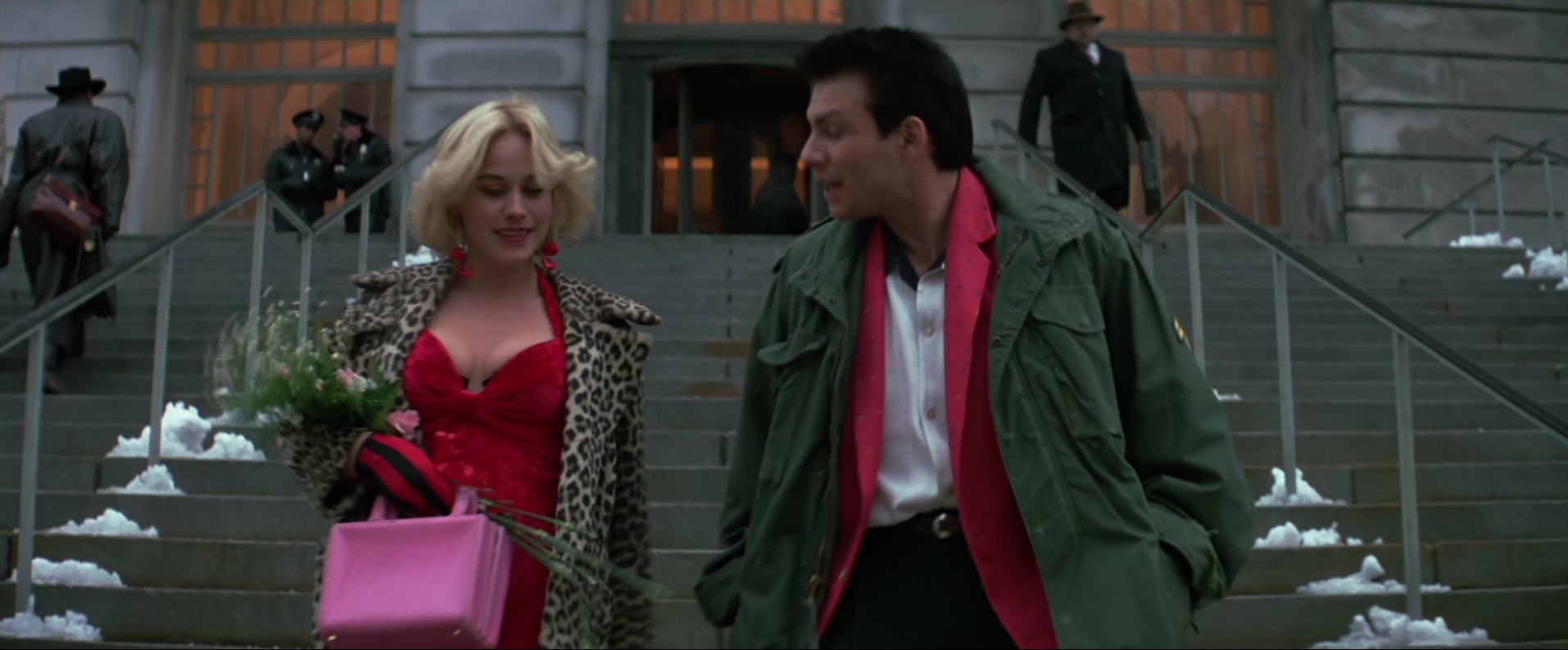
Frankly, True Romance is actually a better dose of Tarantino's imagination than Reservoir Dogs. Director Tony Scott doesn't dick around with the script (unlike Oliver Stone, apparently -- Tarantino distanced himself from Natural Born Killers, explaining its absence from this set), and the results are electric. Most people remember moments like the classic scene between Clifford Worley (Dennis Hopper) and Blue Lou Boyle (Christopher Walken), played to perfection by both actors, or the brutal fight scene between Alabama (Patricia Arquette) and a burly thug (a young James Gandolfini), but the real joy of the movie comes from truth in advertising. Tarantino's statement that "True Romance" is not an ironic title holds up, thanks to incredible chemistry between amateur call girl Alabama and Clarence (Christian Slater). He's an "aw shucks" man of action, making moves based on what he's learned from Elvis Presley and comic books, while she's as genuinely sweet as she is sexy, and armed with a surprising resilience when faced with extreme violence. It's no wonder Tarantino still loves True Romance, because even with another director at the helm, they come to life as vividly as the characters in Tarantino's own films -- it's easy to imagine Clarence and Alabama existing in the same world as the Inglourious Basterds.
On top of the leads, almost every peripheral character in the movie is just as memorable: violent, white gangsta Drexl (Gary Oldman); nervous cokehead assistant Elliott Blitzer (Bronson Pinchot); stoner roommate Floyd (Brad Pitt); and the character credited as "Mentor" (Val Kilmer), which may or may not be the ghost of the King, popping in to give Clarence important advice. Although Robert Rodriguez would retain his fingerprint when he made From Dusk Till Dawn a few years later, True Romance is a fascinating moment in Tarantino's career: it's the one and only time someone other than Tarantino would be able to make a Tarantino screenplay without the concept of Tarantino's style being a consideration, and it proves that his screenplays are more than what Tarantino brings to the table as a director. The characters drive True Romance, and in respecting that, Scott's movie works just fine.
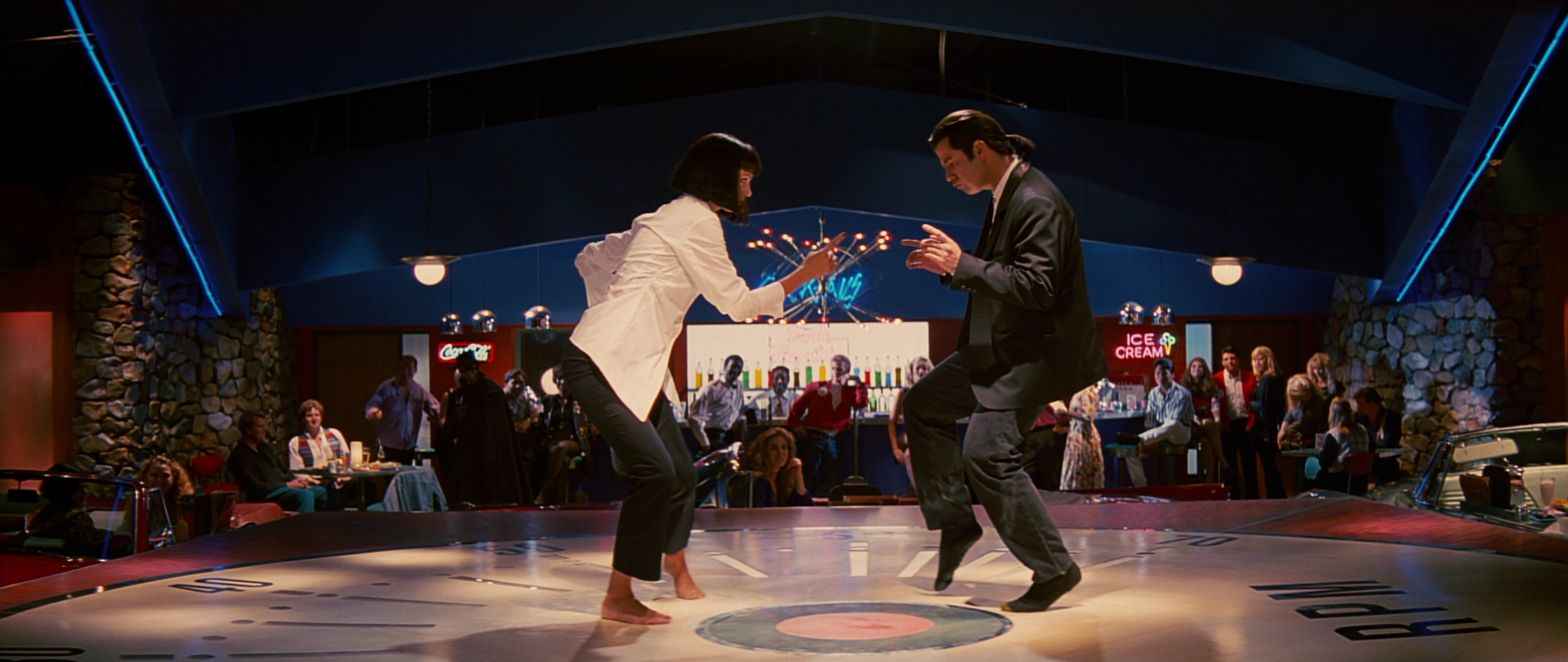
Then there's Pulp Fiction. At this point, it'd be hard to find a film fan over a certain age who wasn't already so intimately familiar with Pulp Fiction that they don't think the film has nothing more to offer them. Yet, when one really sits down and looks at the film from a distance, that familiarity becomes part of the triumph. It's amazing to think that there isn't a moment that isn't fully and deeply ingrained into the pop culture landscape. Those who saw Reservoir Dogs when it opened and didn't have to back up when Pulp Fiction turned into a legitimate phenomenon have the edge: while long stretches of that film go by without a funny or interesting line, it's hard to find a single sentence in Pulp Fiction that is not impressively memorable and doesn't have some sort of greater significance. Talk of TV pilots and foot massages are sneaky exposition, set-up to make the awkward dinner conversation between stoned hitman Vincent (John Travolta) and gangster moll Mia Wallace (Uma Thurman) more tense. As a director, Tarantino smoothly dances through tones and notes that Reservoir Dogs doesn't even attempt: another dose of true romance between Butch (Bruce Willis) and Fabienne (Maria de Medeiros); bloody comic hijinks with Vincent and Jules (Samuel L. Jackson); and literal heart-stopping suspense with Vincent and Mia. The sparse simplicity of Reservoir Dogs' main setting is wiped away in an instant with locales like Jack Rabbit Slim's or the basement of a pawn shop where disturbing things take place. On top of all that, pretty much every performance in the movie is a knockout. Travolta's got superb comic timing and a shabby hippie charm. Willis slyly mocks his image as an action star by playing tentative, unconfident. Harvey Keitel and Christopher Walken turn up in iconic bit parts. Above all, Samuel L. Jackson towers over the movie as Jules Winnfield, starting with a fiery rendition of "Ezekiel 25:17" and building to the subtlety of a man who's seen something that changed him. Familiarity with the movie might seem to dull its impact, but make it's an illusion. To watch the movie again is to remember that Pulp Fiction is a masterpiece.
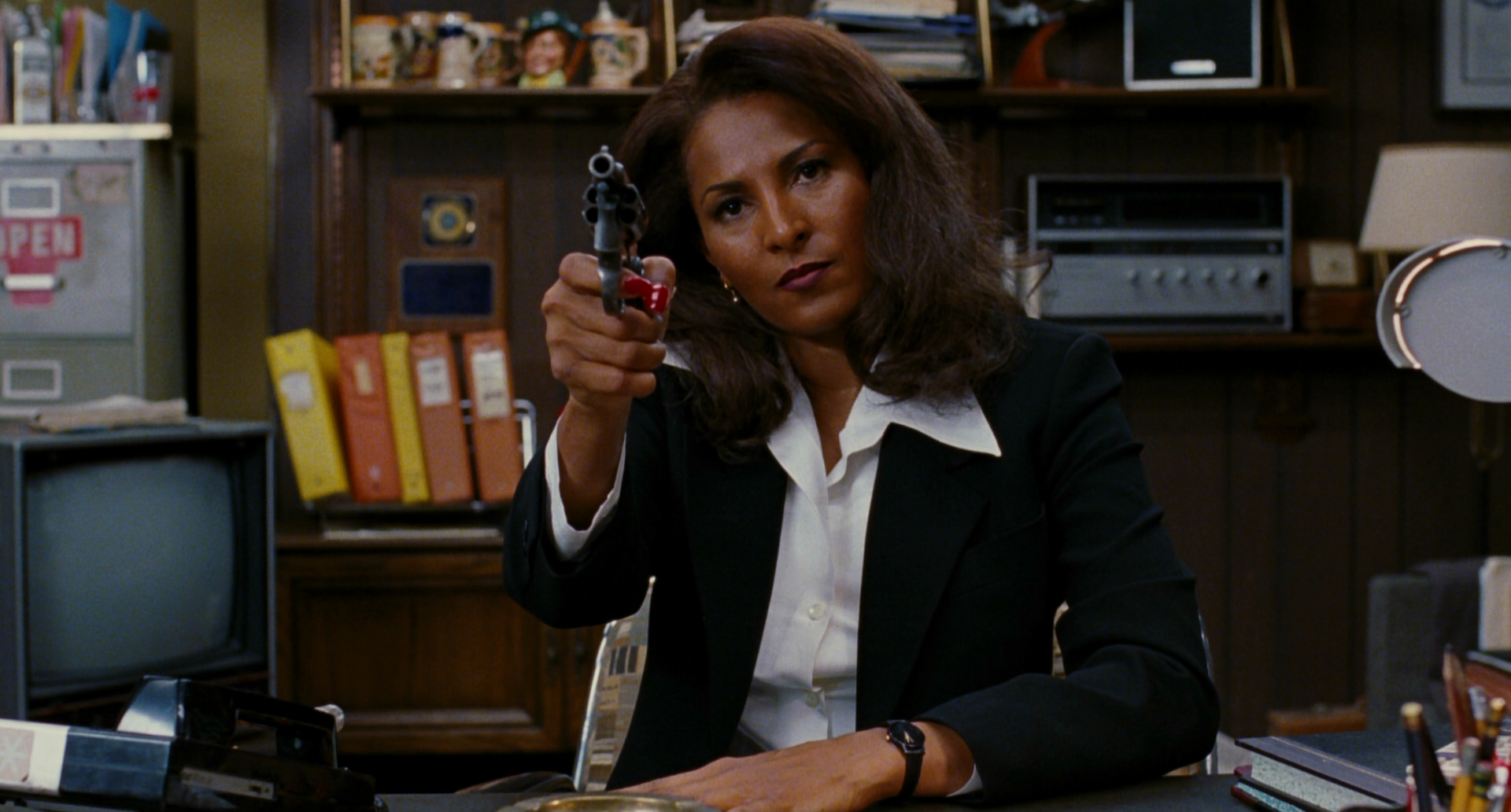
Having made a memorable debut feature and returned with an even stronger sophomore effort (as well as writing and starring in From Dusk Till Dawn, which is absent from this box set for far less convincing reasons than Natural Born Killers...thanks, Echo Bridge), Tarantino did what he does best: switch gears. There is some controversy over how much Quentin Tarantino owes to his co-writer Roger Avary, who got a credit on Pulp Fiction, but who also worked on Dogs and Romance, and that's a discussion worth having. On the other hand, that complaint suggests that Tarantino is little more than some clever lines, and it ignores the fact that Tarantino's best work is all post-Avary. Jackie Brown takes all the directorial snap, crackle, and pop of Pulp Fiction and throws it out the window in favor of a character piece even less showy than True Romance. Despite disappointment from some audiences that it wasn't Pulp Fiction 2, it's another massive leap forward for Quentin. If it's not his best film (I go back and forth, but...it is), at the very least, it offers the best performance by one of his lead actors with Robert Forster as Max Cherry, a weary bail bondsman who isn't quite sure if the future holds anything for him but burn-out criminals he'll end up having to haul back in himself. Things change when he meets Jackie Brown (Pam Grier), a flight attendant bringing money into the country for Ordell Robbie (Jackson again), a dangerous criminal wanted by the FBI and DEA. Max is smitten with her right away, and the story of their budding relationship perfectly complements the understated cool of Jackie's plan to deal with Ordell, law enforcement, and get back at all of them at the same time.
As Max, Forster is on the level as Jackson's Oscar-nominated Pulp Fiction turn or Christoph Waltz's Oscar-winning performance as Hans Landa in Inglourious Basterds, without the showiness of those roles (which I say as a credit to Forster, and not at all a criticism of Jackson or Waltz). Grier is just as good: the one-time, all-time Blaxploitation queen shades in her bad-ass side with a past-40 sweetness, and Jackson is only a step behind them, subduing the sense of humor that made a character like Jules kind of fun and becoming a truly menacing villain. Complete with some of Quentin's most magical soundtrack choices (how can anyone hear that Delfonics song and not want to watch this?), it's a soulful, special movie that approaches everything Tarantino does best as a writer and a director from a new angle and doesn't lose anything in the process.
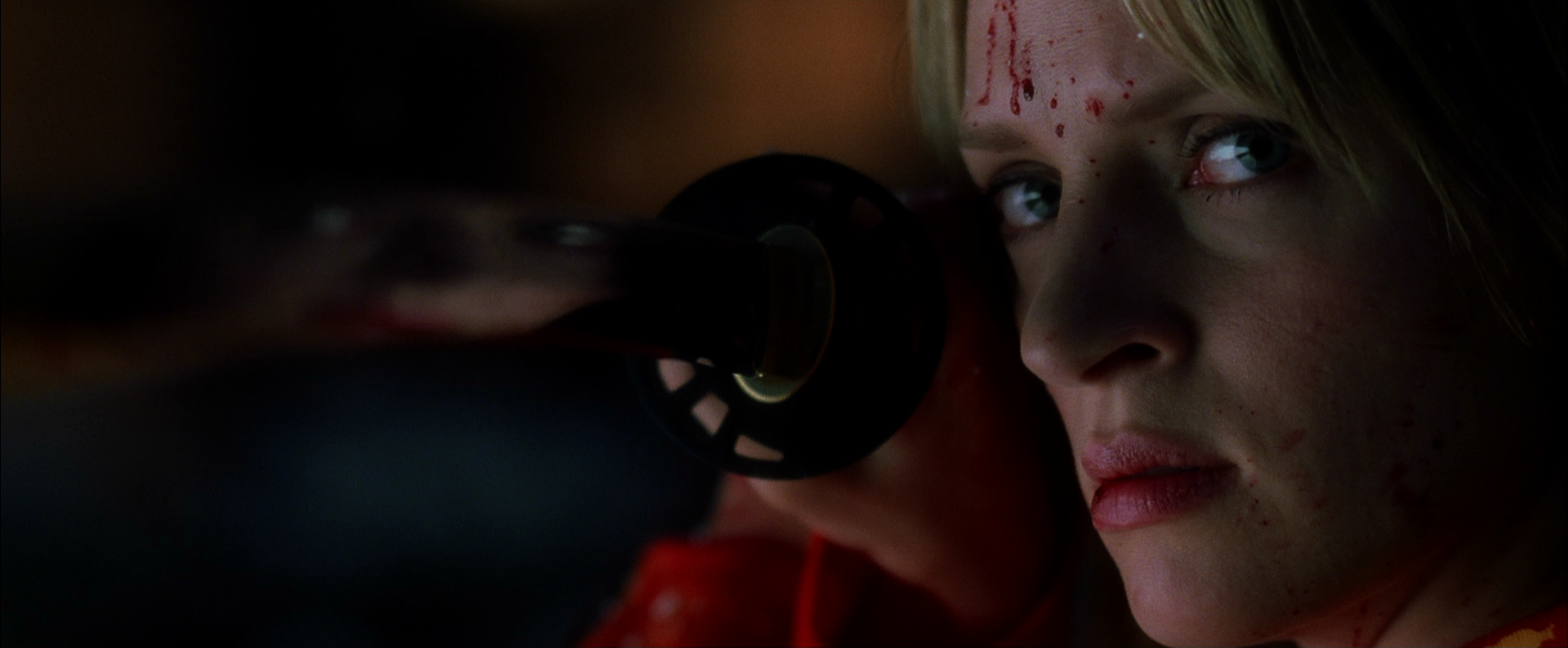
Between 1997 and 2003, Tarantino was MIA. According to Tarantino, he was trying to write Inglourious Basterds using a story he eventually ditched for the one in the final film, and, to cleanse his palate, he thought he'd make a little exploitation picture on the side. That turned out to be Kill Bill, a revenge picture that combined samurais with the spaghetti western in his first epic, one so grand scope and scale that Harvey Weinstein had to tell him to cut it into two volumes. Personally, for years, the first film felt like everything Tarantino's detractors accuse him of, a trumped-up remix that went about its business stiffly and awkwardly, and it wasn't until the second half that Tarantino found his characters and therefore his groove. Surprisingly, this time, it was the other way around: the first half offers a giddy Tarantino at the top of his game, while the second gets muddled and lost in sub-characters and sub-plots. There are still things about Vol. 1 that clang and clatter, like the uncomfortably gender-based bitterness in the opening conversation between Vernita Green (Vivica A. Fox) and The Bride (Thurman), but her roaring rampage of revenge is feral and cathartic, providing a sense of determination sorely missing from the second, which spends an unusual amount of its running time focused on everyone other than The Bride. It's not that the final confrontation between her and Bill (David Carradine) is underwhelming -- the entire section of the film at his villa is fantastic, and it follows through on the raw emotions that underlines Volume 1's intensity -- but, especially with the break, it feels strange to lose sight of the movie's hero. In that regard, those who have been clamoring for The Whole Bloody Affair for ages are also vindicated. A complete edit still seems less than necessary, but it'd be interesting to see how the film plays without a pause (if only because the dopey black-and-white intro and outro that was clearly added for the two-part version would hit the cutting-room floor).
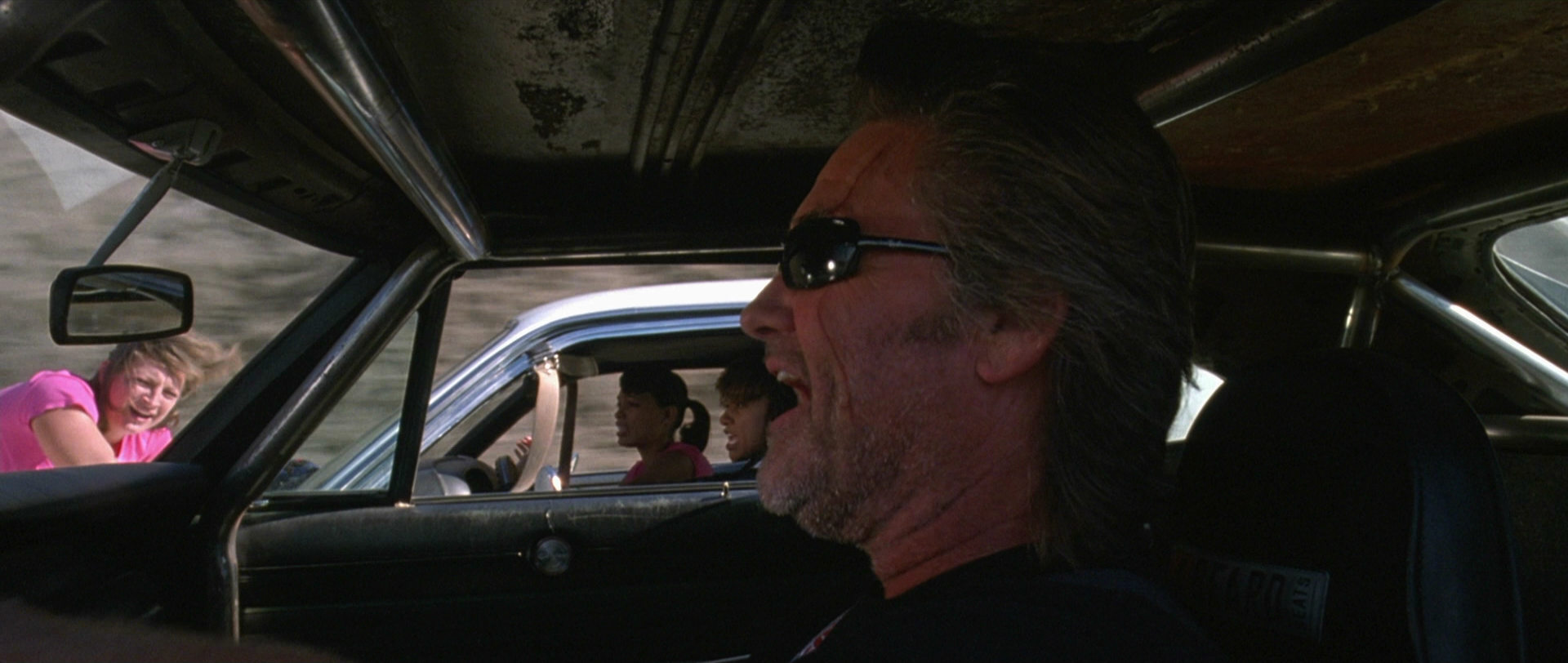
In 2007, Tarantino teamed up with Rodriguez again, this time to create Grindhouse, a two-part, three-hour celebration to schlock cinema of the 1970s. Tarantino's contribution was Death Proof, easily the least-appreciated film in Tarantino's catalog (even by Tarantino, who cited it as his worst in another recent interview). Frankly, the detractors are wrong. Although Death Proof is admittedly a bit of a goof, interrupting his growth into epics with a motorized slasher film, and it cranks the same obnoxious cattiness in the Vernita Green fight up to 11 (Tarantino may have more of a problem with the word "bitch" than he does racial slurs), there's still tons to enjoy in this playful thriller, led by Kurt Russell's performance as Stuntman Mike. Perhaps the haters don't notice how riotously funny Mike's seething, murderous intentions for two separate groups of women are. Mike has a victim complex, seemingly bitter that younger women are a tease, or that fewer and fewer movies are interested in his trade, but Tarantino illustrates that as misplaced ego with a group of young kids who don't recognize any of his projects and the impotency of an oncoming sneeze that simply peters out. The second half of the movie features what must be the wildest, most exciting car stunt sequence in years, headlined by Tarantino stuntwoman Zoë Bell as a version of herself, sliding precariously on the hood of a speeding car as Mike rams it with his own vehicle in a homicidal rage, but Tarantino only amps up the comedy further in the end, gleefully highlighting Mike's terror at having someone fight back (another theory: people were unprepared to see Snake Plissken play a huge baby). Reportedly, the production was a grueling one for Tarantino, and so his frustration with the final product might stem from that (the director's cut included here has some fantastic additions, like the infamous lap dance scene -- both the gag in the theatrical cut and the scene itself are excellent -- but some of it should've been left in the editing room), but to say it's his worst ignores the leaps and bounds he's made as a filmmaker since his debut.
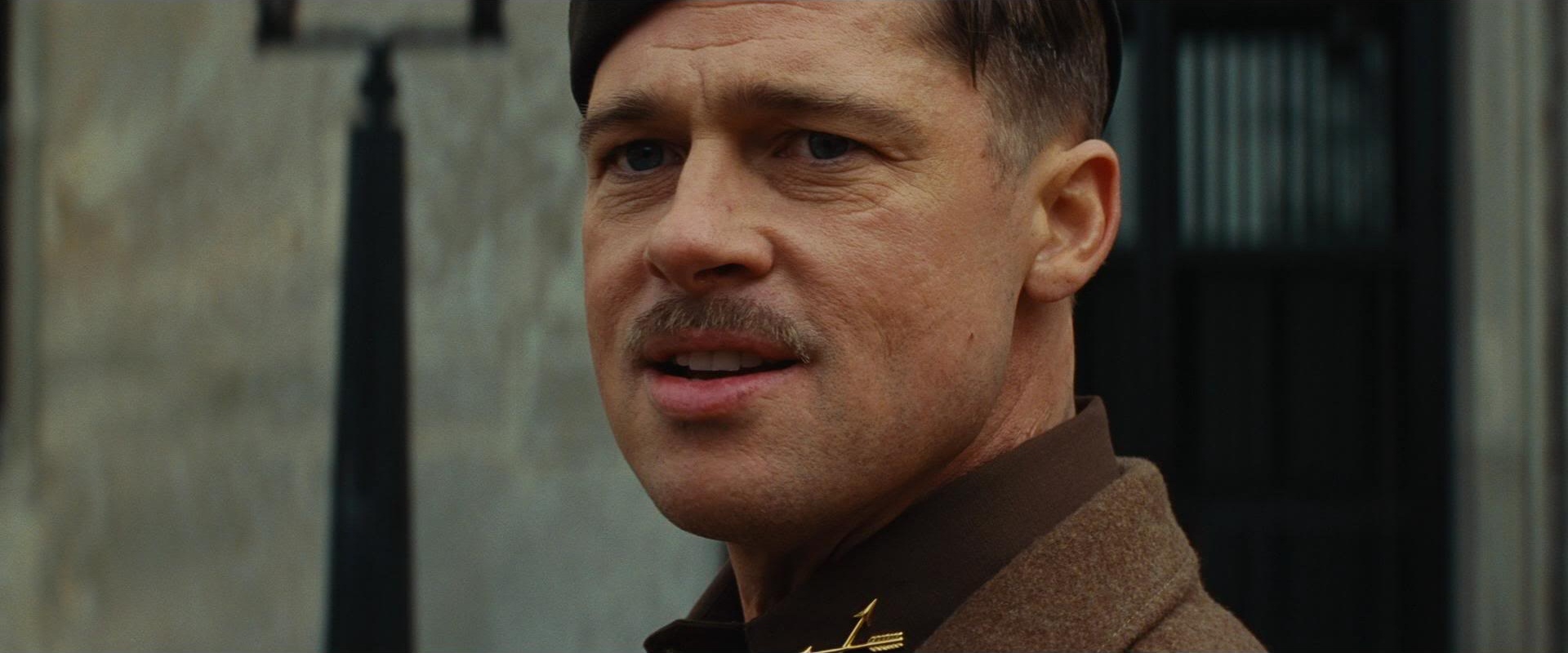
The set concludes with Inglourious Basterds, and if it's not his best movie, it's certainly his most daring. This time, the length of an epic fits on him, allowing him to focus on several principle characters: Colonel Hans Landa (Christoph Waltz), a master detective and Nazi general who's been charged with finding and killing all the remaining fugitives in Germany; Shoshanna (Mélanie Laurent), one of those fugitives, who barely escaped Landa years earlier and now runs a movie theater in Paris; and Aldo Raine (Brad Pitt) and his team of Basterds, a squad of soldiers who have but one goal, "killin' Nazis." With wit and relish, Tarantino weaves these three stories in and out of one another, around the premiere of Nation's Pride, a Nazi "true story" propaganda film starring the soldier who inspired it, Fredrick Zoller (Daniel Brühl). Along the way, Tarantino leaps from tone to tone as deftly as he did in Pulp Fiction, cutting from the nearly unbearable tension in one of the film's many show-stopping sequences, set around the table in a small bar to the broad comedy provided by Pitt's performance as Raine. Obviously, the whole film is fantastic and the finish is really spectacular (and uniquely Tarantino), but in some ways, the sequence in the bar is the perfect capper to Tarantino's first twenty years as a filmmaker: he's still got his characters sitting around a table, bullshitting about pop culture, and yet the two moments couldn't be more different.
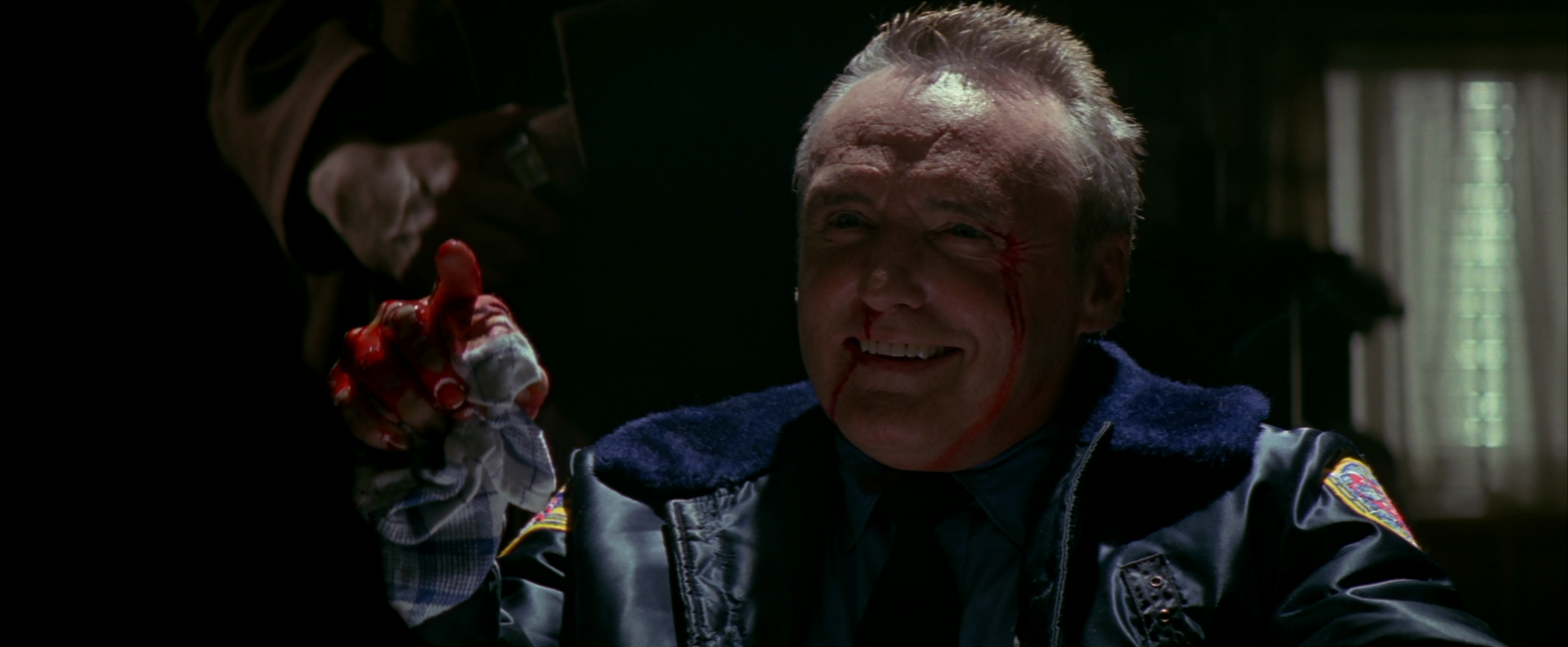
The Blu-Ray
Over the course of the year, I see hundreds of DVD and Blu-Ray releases, and 90% of these releases have lazy, modern cover art, all involving incongruous Photoshop elements, poorly-placed text, and the dismissal of movie posters with better designs. Even covers that exhibit effort are often "minimalist" graphic design nonsense that's good only by the virtue of it being better than nothing.
This, on the other hand, is exceptional. Lionsgate put some real thought into this wonderful-looking packaging, and it pays off. The front of the box is adorned with a black-and-gray picture of Tarantino, drawn by Ken Taylor from a Vanity Fair photograph from a few years ago, with "Tarantino XX" emblazoned across the front in eye-catching gold foil. In the background, red, black, and yellow are used on a collage of iconic Tarantino imagery, such as a pack of Red Apple cigarettes and the tailgate of the Pussy Wagon. An interior fold-out section slides out from the bottom of the sleeve to reveal the 10 discs in two-disc digipak trays (the kind where the hub for the disc on top sticks out over the bottom disc slightly). On one side of the tray is another piece of Ken Taylor artwork, of the characters from Tarantino's movies; on the reverse, a collage of dialogue quotes forms the backdrop behind the discs. The quotes for a given film surround the tray for the corresponding disc, and when the disc is removed, the title logo and billing block are revealed in the center. It's a gorgeously designed set, and it takes up less space than the individual discs, which may be a worthwhile plus for many people.
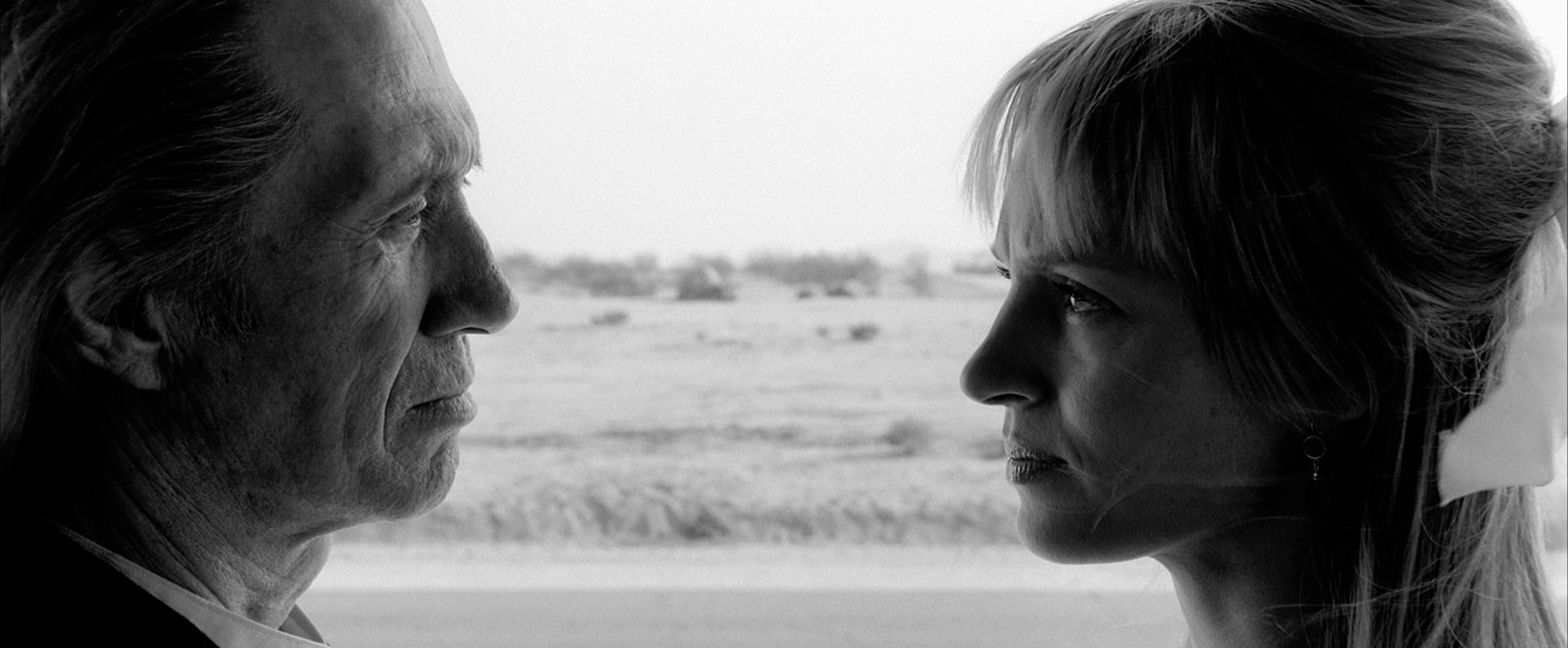
The Video and Audio
The film discs included in Tarantino XX are the same discs that have been available individually for some time, so I won't go too in-depth regarding the A/V quality, but most of these films look good. Reservoir Dogs fares the worst, appearing washed out and slightly waxy; I can't help but wonder if a new, less washed-out scan would reveal previously unseen levels of depth and dimension to the picture. As it is, it's flat and bland. The best discs in the set are Basterds, being the most recent and thus not a "vintage" transfer but that of a new release film, and Pulp / Jackie, which arrived on disc most recently and received strong, if maybe slightly yellowish treatment from Lionsgate (Brown being the better of the two transfers). The Kill Bill films end up in the middle, while Death Proof looks good but also features intentional, fake deterioration of the image as part of the Grindhouse aesthetic.
The soundtracks, on the other hand, all sound fine to me. Dogs was shot on the cheap in an empty warehouse, and the sound mix reflects that; as the least flashy of his films, the soundtrack doesn't have to do as much work. Pulp and Jackie again benefit from the most recent disc-based treatment, while the Kill Bill films positively electrify with every crack and whoosh of fists hitting their mark and swords flying through the air. Death Proof shows off with a thunderous, bassy growl whenever Stuntman Mike's death proof car roars into action, as well as the stunning crash sequence that will send glass flying out of your speakers and across the room, and Basterds again impresses with a modern high-def audio presentation as good as any recent theatrical feature gets on Blu-Ray. Elaborate subtitle and language options are present on all discs, which are again identical to individual releases.
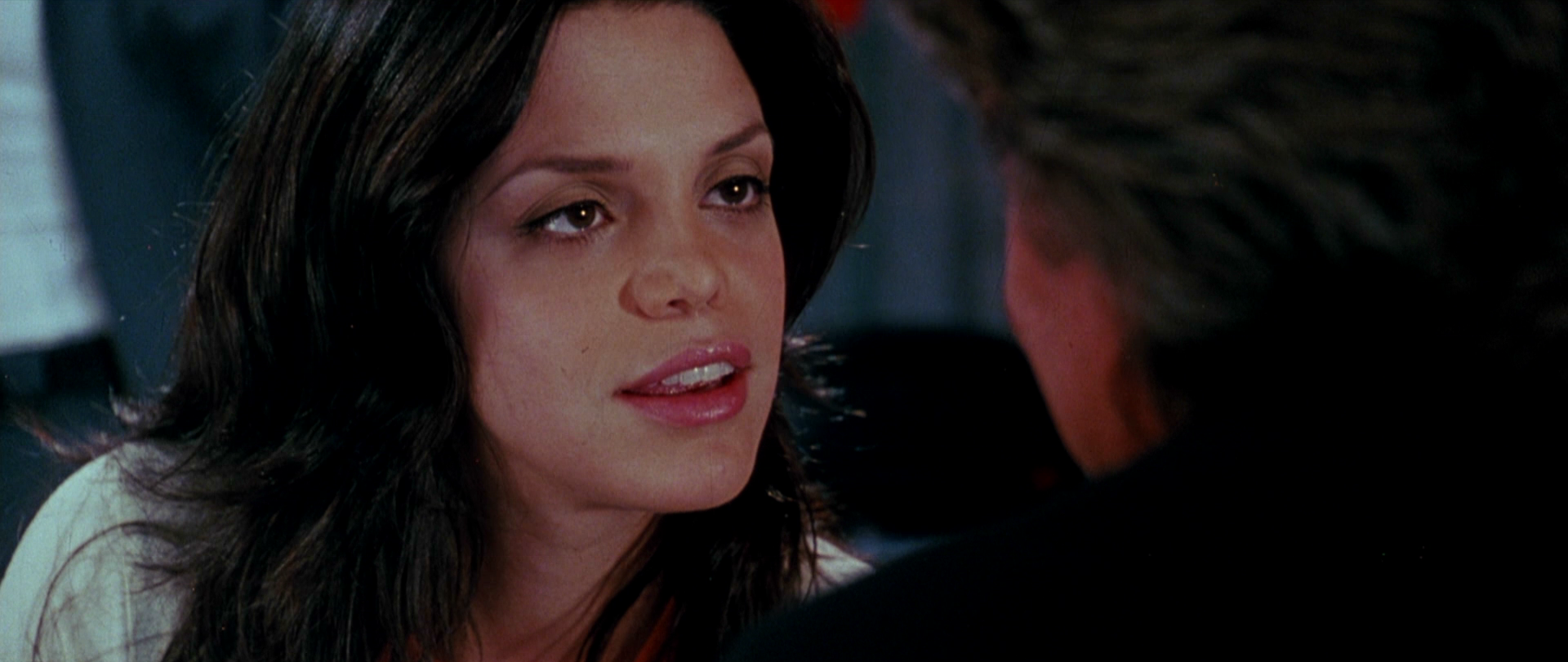
The Extras
Again, the film discs in this set are identical, and that includes the extras. A bunch of supplemental material from the various DVD editions of Reservoir Dogs is still missing, but I believe all of the other discs in the set mirror or trump their DVD counterparts. Full rundown and discussion of the extras on each movie can be found in DVDTalk's reviews of those Blu-Rays: Reservoir Dogs, True Romance, Pulp Fiction, Jackie Brown, Kill Bill Vol. 1, Kill Bill Vol. 2, Death Proof, and Inglourious Basterds.
However, Lionsgate has gone the extra mile to beef up this set with two exclusive Blu-Ray bonus discs. The first disc contains a 7-part "Critics' Corner: The Films of Quentin Tarantino" (4:50:44, HD), featuring critics Elvis Mitchell (Film Independent at LACMA), Scott Foundas (The Village Voice), Stephanie Zacharek (The LA Times), Tim Lucas (Video Watchdog), and Andy Klein (Christian Science Monitor). Those with good memories will notice this is the same lineup of folks that appear on the "Critics' Corner" pieces on the Pulp Fiction and Jackie Brown Blu-Rays, and in fact the discussions for those two films is the same footage found on those discs. In some ways that seems like a waste of space, but I suppose it's more convenient to watch the group chat in one continuous piece. Then again, I'm a little skeptical whether or not casual viewers will find this extra interesting. Not to scoff at five hours of material, but I wonder if a critical analysis of Quentin's work wouldn't have been better served in a standard interview format, where each critic could present their own thoughts, possibly illustrated by clips from the movies. The discussion is so casual it can feel like it's dragging on, and having to pipe up faster than four other people to get thoughts in is not necessarily an environment conducive to deeper observations vs. pure personal preference.
In addition, it strikes me as a little odd that Zacharek is the only woman in the discussion; given how famous Quentin is for writing memorable female characters, you'd think they'd have gone with six critics and gone half and half, or at least brought on one other female critic (which would also even it out if you consider Mitchell to be the moderator). Not that the guys say anything skeevy, but it's a little tense when Zacharek doesn't agree with the group on Reservoir Dogs OR Pulp Fiction. Best Buy had a bonus disc with Inglourious Basterds, an hour-long Q&A with Tarantino and Lynn Hirschberg of the NY Times Magazine (which, by the way, could've been included here); I wonder if there was any attempt to see if she would participate. Of the lot, Foundas has the most interesting comments, displaying a good sense of humor while articulating some interesting, well-researched ideas about Quentin and his work. For devotees, not casual viewers.
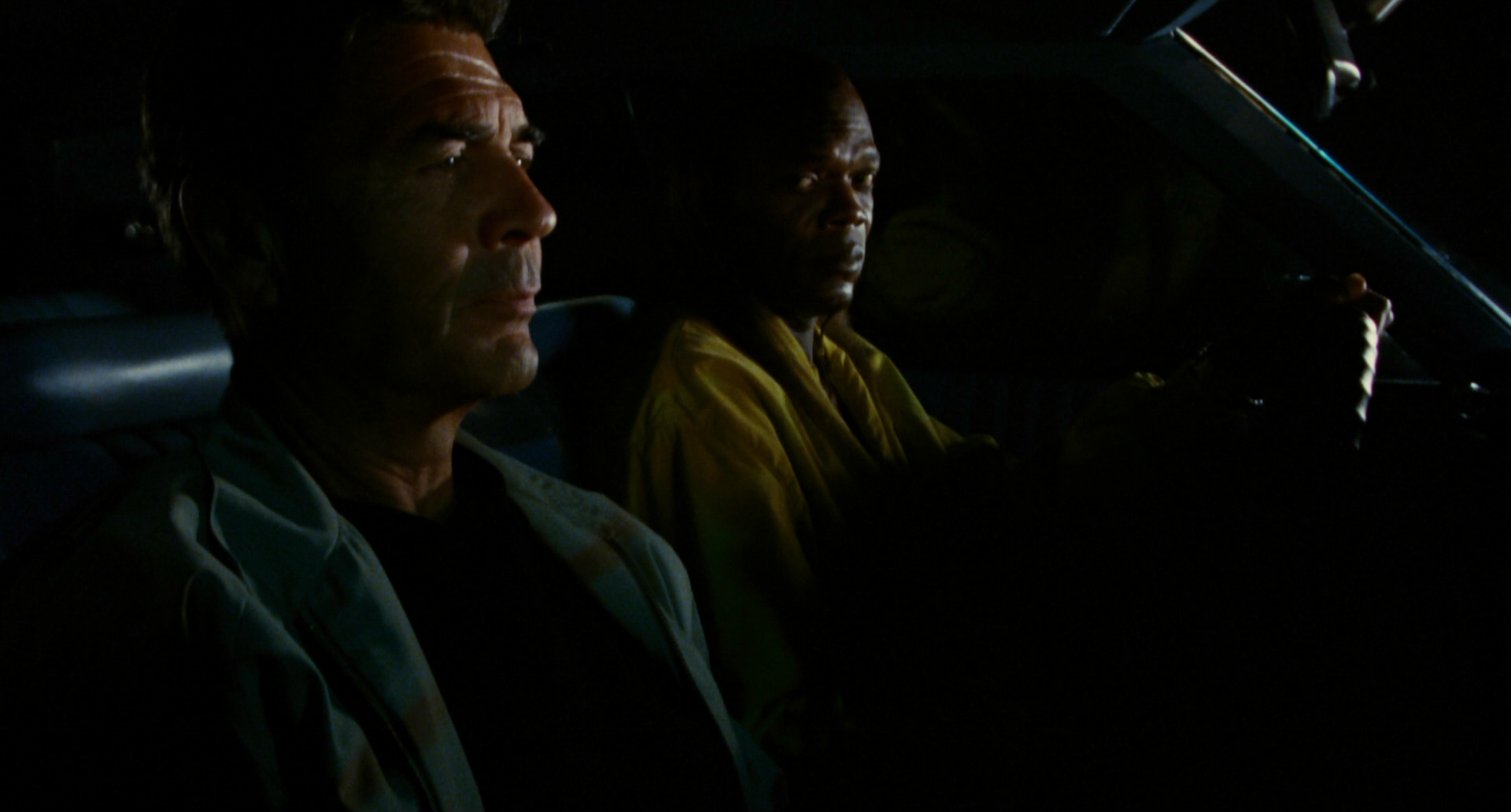
On the other hand, everyone should enjoy the 8-part "Quentin Tarantino: 20 Years of Filmmaking" documentary (2:13:21, HD). Lawrence Bender, Richard N. Gladstein, Robert Rodriguez, Elizabeth Avellán, Greg Nicotero, John Travolta, Samuel L. Jackson, Tim Roth, Pam Grier, Robert Forster, and Dean Parisot (husband to the late Sally Menke) chat about Tarantino's career from Reservoir Dogs through to Inglourious Basterds. Although the documentary is sorely missing the participation of some crucial regulars (assuming one accepts the premise that Tarantino himself is going to leave it to others to discuss his work, it's a shame that Harvey Keitel, Uma Thurman, Christoph Waltz, and Zoë Bell were unavailable), there's some really wonderful material here, particularly Parisot's discussion of Menke's relationship with Tarantino and her love of cutting his material. The doc does sort of miss a step along the way, in that it starts out as a film-by-film discussion but suddenly switches gears in the middle (I would've liked more specific focus on each film after Jackie Brown), but the doc moves along at a snappy pace and those who do contribute are all appreciated, particularly Travolta, who has some fresh, fun stories about committing to the material and research he did to play Vincent.
The disc also offers "Jackie Brown Q&A: A Film Independent at LACMA Event" (32:15, HD), which is a nice if too-brief discussion that has the disadvantage of overlapping with the documentary, but the advantage of Tarantino's presence as one of the participants, alongside Grier and Forster. Finally, the set concludes with a helping heaping of Django Unchained trailers (10:54, HD).
Now, this is a good selection of extras, but I would be lying if I didn't say the package skews a little "quantity over quality" overall. The vast majority of Tarantino's audience owns multiple Tarantino films on Blu-Ray already. I'm skeptical the "Critics' Corner" material will get a re-watch for many viewers, if they get through the whole thing at all, and even the doc, although it's filled with fun stories and is highly entertaining, may not be a piece that lends itself to multiple viewings. Although there is plenty of good content here, all things considered, I really can't say fans need to hock their discs in favor of this box set on the basis of the new extras alone.
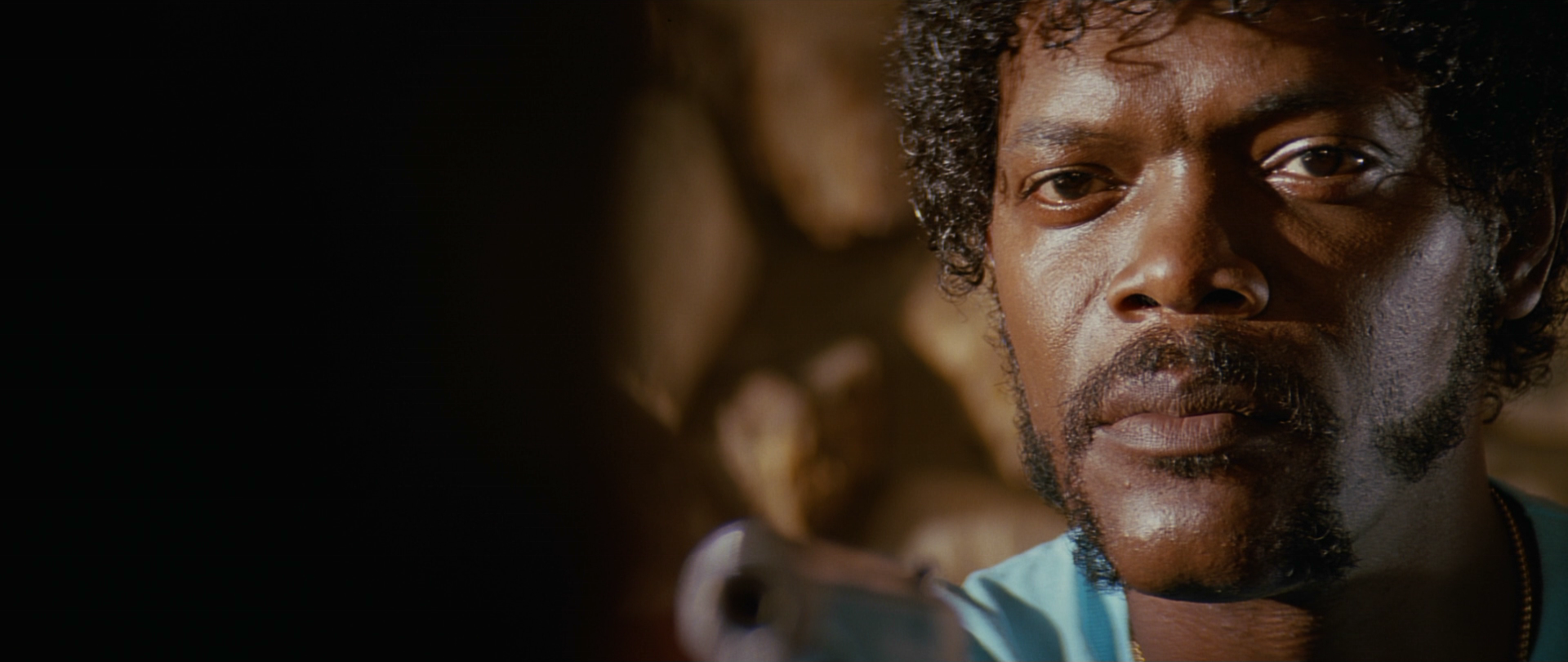
Conclusion
For anyone who only owns three or less Tarantino movies on Blu but wants the others, this stylish collection is a no-brainer. Sell your individual discs online or to a friend and use the cash on this, which is cheaper than buying his library one by one (MSRP is $119.99, but I've seen places selling it for $70), on top of the price, space, and bonus feature advantages. Combined with the quality of the movies included in the set (at least one of which will likely get far more appreciation than I have for it), this easily leaps into the DVDTalk Collector's Series. For those who already own four or more of the eight older discs here, it might be more of a toss-up, but this still a very attractive, well-priced set that offers a great-looking house for all the discs and two bonus platters to boot.
Please check out my other DVDTalk DVD, Blu-ray and theatrical reviews and/or follow me on Twitter.
|
| Popular Reviews |
| Sponsored Links |
|
|
| Sponsored Links |
|
|
| Release List | Reviews | Shop | Newsletter | Forum | DVD Giveaways | Blu-Ray | Advertise |
|
Copyright 2024 DVDTalk.com All Rights Reserved. Legal Info, Privacy Policy, Terms of Use,
Manage Preferences,
Your Privacy Choices | |||||||









